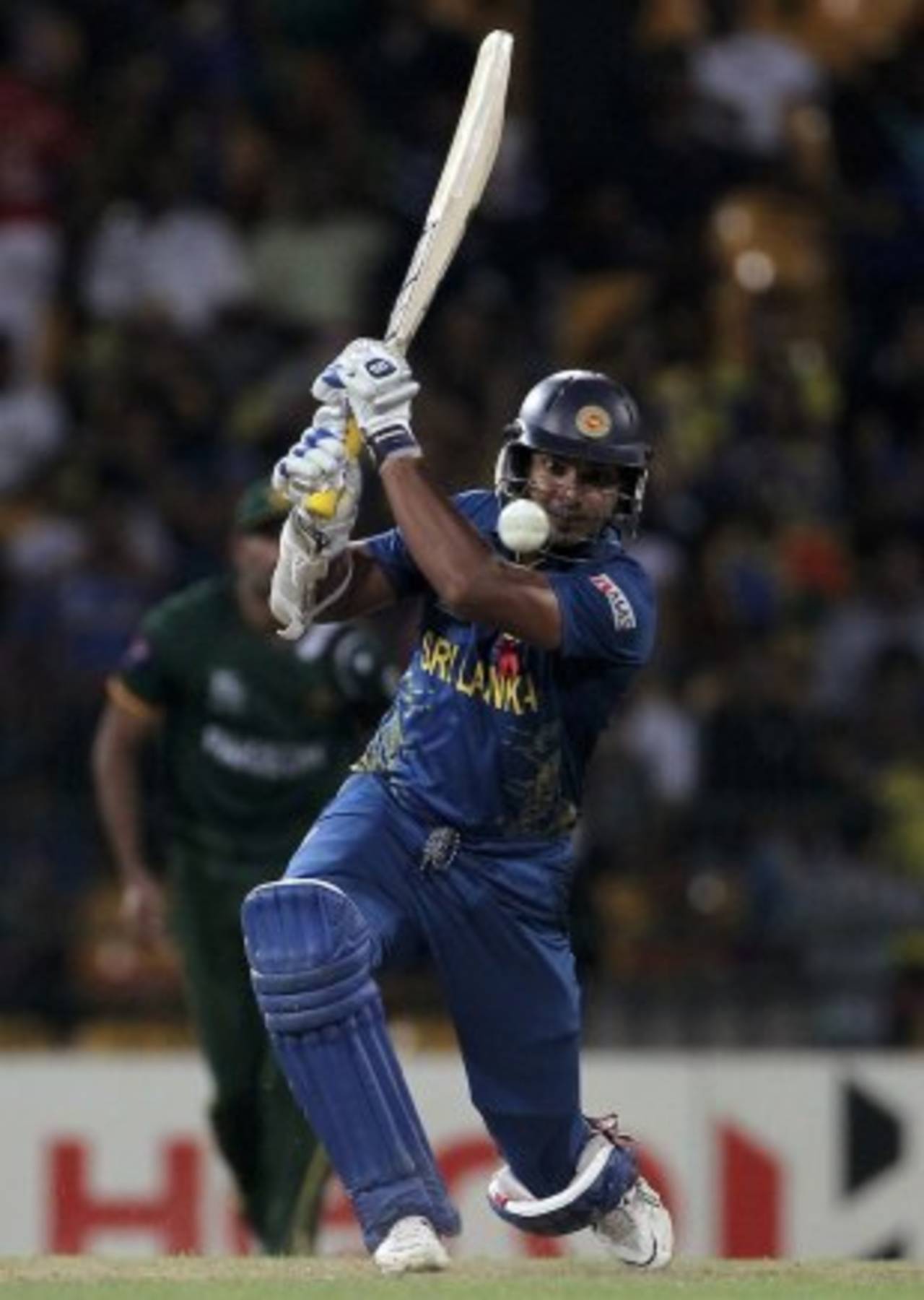Nothing came easy for Sri Lanka in their semi-final against Pakistan. After five overs, they had made 24 - easily their slowest start of the tournament. An opener renowned for his aggression couldn't find the boundary, heaping inadvertent pressure on the men around him on a difficult track. Kumar Sangakkara rarely looks comfortable attacking, but that's exactly what he had to do from his first ball. He landed a few punches, but was knocked out sooner than he would have liked.
Still, he can console himself that has never made a score so vital for Sri Lanka that superficially reads so poorly on the scorecard.
Each cog in Pakistan's bowling attack was secure. There were few loose balls and even fewer mistakes in the field. Perhaps Pakistan released some pressure when Umar Gul's final over went for 16, but Gul had done exceedingly well to build up much of that pressure in the first place, in an 18th over that cost just 3.
In the field, Sri Lanka knew they had to save every run. Lasith Malinga had a shocker, but as a unit Sri Lanka were unrelenting. Tillakaratne Dilshan set the standard when he dived full length to intercept two balls heading for the boundary inside the Powerplay, and the young guns in the circle followed suit. Two or three fielders backed up every throw, and when the ball dribbled into the infield, it was swarmed from every direction. They were defending only 139, but they threw themselves around as if they hadn't even made 100. The result was a Pakistan Powerplay that was less productive than their own.
Sri Lanka's captain - a man who bats so beautifully his blade appears to be made of liquid - dutifully played an innings that was as ugly as any that he has played. In the fifth over, Mahela Jayawardene ran down the pitch to Sohail Tanvir, looking for his release shot over midwicket, but the heave he ended up playing would have drawn blushes from a rusty gate. Jayawardene top scored for his side, but the channel outside off stump was a battlefield in which he copped repeated blows from Tanvir, but somehow evaded the coup de grace.
In 2009, Jayawardene was having so much trouble timing reverse strokes that he resorted to using the back of the bat to open up that part of the field. Two World Twenty20 tournaments later, those shots brought him more than a quarter of his runs in a semi-final. To look at his strike rate of only 117 is to do injustice to the fire in his innings, and the preparation that had gone into it. He will think the 12 runs he scored with the reverse sweep were more than just reward for all the hours he has spent in the nets practicing the stroke.
Then there is Rangana Herath. A man with spirit so indomitable that being held at arm's length for a decade by the selectors only amplified his drive to deliver for Sri Lanka. Having stared from a distance for so long, what was a few matches in one tournament? He had played only two of Sri Lanka's five games leading into this one, but bowled the over that took the hosts to the final.
Pakistan are said to have a weakness against left arm spin, but Herath has not been among their tormentors. He averages over 30 against them in all forms. Each fresh battle, however, is an opportunity. In two balls he brought Pakistan to their knees. Herath doesn't fret over past injuries, he just puts every ounce of himself into every game he plays. That he returned to make that double strike immediately after having bowled the most expensive over of the innings spoke volumes about his character and the trust his captain puts in him.
Angelo Mathews and Thisara Perera didn't watch from a distance either. The pair had failed to propel Sri Lanka home once in the tournament, but they were determined to finish well with the bat, even if Gul had rediscovered his gift for yorkers. Their 16 off the last over was another crucial factor in Sri Lanka's win. Mathews then returned with the ball to bag two invaluable scalps of his own. Before his second over, Pakistan had built a terrific platform from which to launch and the crowd had lost its voice almost entirely. When he took two in four balls, the Premadasa began believing again.
Throughout this campaign, Sri Lanka have proved they will not back down when the going is difficult. In the Super Over against New Zealand, there were no boundary balls to hit, yet somehow they managed 13. Under threat of having their captain suspended, the team produced a piece of tactical genius to circumvent the law. In their own home tournament, they are the only team who have had to play at all three venues. The powdery brute they encountered against Pakistan is worlds away from the fast southern seamers they began their tournament on.
In the 2011 World Cup, it was said Sri Lanka had the easy path to the final. This time around, they have scrapped their way there. Every man down to the youngest player has proved himself. The scorecard of the first semi-final may suggest an unremarkable affair, but Sri Lanka know they have been in a dogfight, and the triumph here will add more steel to a side who have been burned at the last hurdle too many times before.
Andrew Fernando is ESPNcricinfo's correspondent in Sri Lanka
